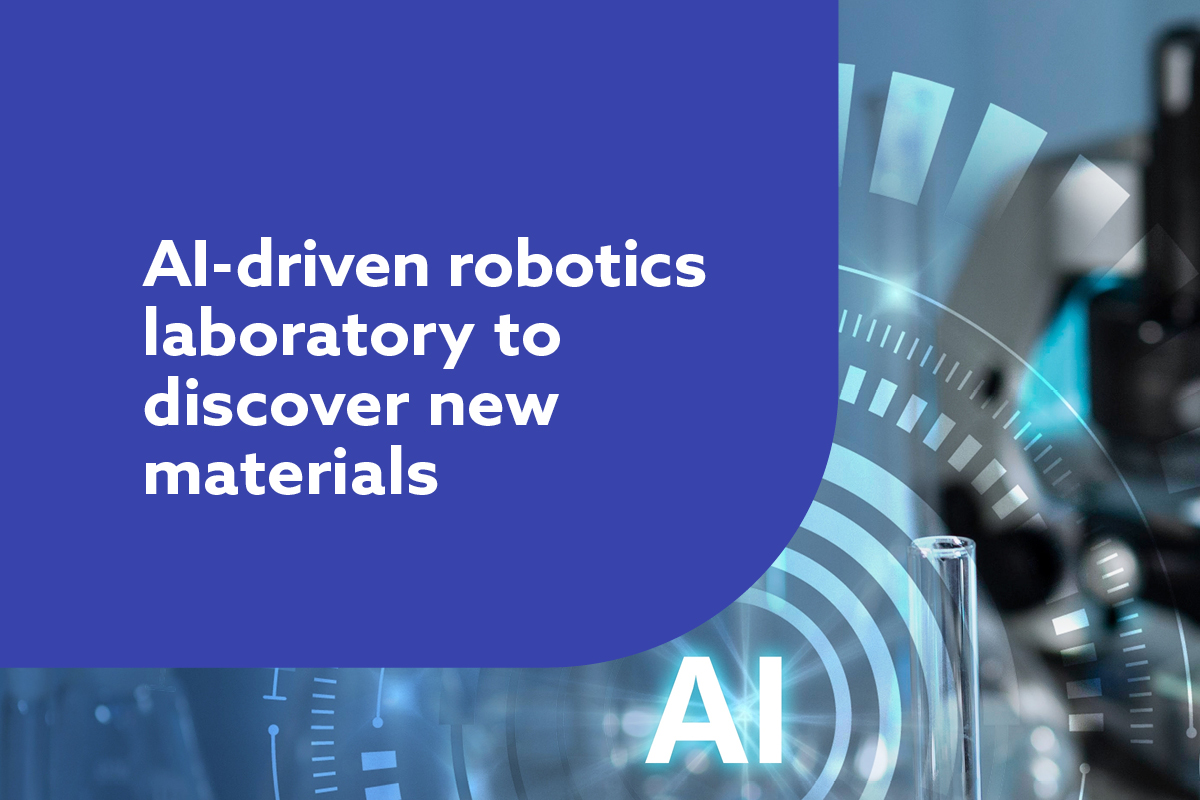AI-driven Robotics Laboratory to Discover New Materials

Join us for a deep dive into how artificial intelligence and robotics are transforming materials discovery.
Artificial intelligence and robotics are transforming how new materials are discovered and developed. By enabling autonomous laboratories, AI allows robotic systems to independently design, carry out, and analyse experiments at a scale and speed far beyond human capability. This automation not only expedites research but also opens up exciting new possibilities for innovation.
Robotic platforms can perform thousands of experiments simultaneously—eliminating fatigue-related limitations and vastly improving efficiency. For instance, Argonne National Laboratory’s Polybot system screened 90,000 material combinations in a matter of weeks, a task that would typically take months using manual methods.
This session aims to explore how AI-driven automation is reshaping materials science by:
- Reducing time and cost through faster, more efficient discovery.
- Exploring wider chemical spaces than ever possible by hand.
- Identifying novel materials with groundbreaking properties.
- Optimising material performance for specific applications.
- Improving reproducibility and data quality through consistent, automated workflows.
Join us to learn how the convergence of AI and robotics is redefining the future of materials research.
3 key takeaways:
- Outlook on materials labs in the next 20 years
- Deep dive into the current advancements and anticipated future challenges in implementing in the university artificial intelligence for the development of a robotics laboratory aimed at discovering new materials
- Knowledge of the potential implementation of an AI-driven robotics laboratory for the discovery of new materials in their businesses
Agenda |
15-minute presentations + 5-minute Q&As
| 13:00 | Welcome Introduction by Sergio Gonzalez Sanchez |
|
|
|
| 13:25 |
Toward Self-Driving Laboratory for the Design of Multifunctional Nanocomposites |
| 13:45 |
Organic synthesis in a modular robotic system driven by a chemical programming language |
| 14:05 |
An autonomous laboratory for the accelerated synthesis of inorganic materials |
| 14:30 | Close of webinar |
We will hear from: |











